#illyrian deities
Text
Illyrian gods
↳ Illyrians never functioned as a unique ethnic entity. Rather, each tribe had their own set of gods which explains a lack of a clearly set pantheon. Some gods were more widely spread - like Medaurus, Bindus, Vidasus and were worshipped by more than one tribe.
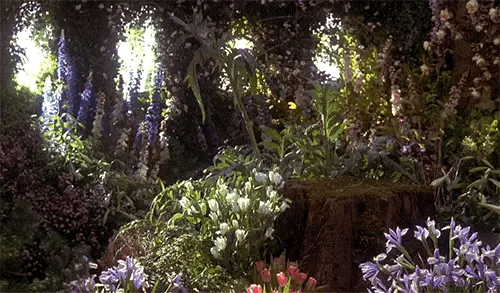
↪Liburnians believed in gods that weren’t mentioned elsewhere in the Illyrian region:
Ika (goddess of water and olives)
Sentona (goddess of fertility, agriculture and health)
Latra (also known as Great Mother, goddess of love and fertility)
Anzotika (goddess of love, motherhood, fertility, guides souls to underworld)
Aitika (goddess of agriculture, plants)
Heija (goddess of lands, justice, animals and female sexuality)
Irija (Creator Mother)
Jutosika (unknown)
↪Colapiani mainly worshipped Vidasus and Tana (protectors of forests, grasslands, wild animals and water springs) (Vidasus is the god of forests, Tana is the goddess of hunt)
↪Iapodes mainly whorshipped Bindus (god of water)
↪Histri worshipped:
Eja (goddess of fertility and love)
Trita (goddess of health)
Nebrama (goddess of darkness, fog, spells, storms)
Boria (goddess of wind)
Histrija (goddess of peace, protector of Histria)
↪Dardani worshipped:
Andin (god of family and home's fireplace)
Dardanija (personification of Dardan land)
Zbeltiurdus (supreme god)
Divine Couple Dracco and Draccena (snake gods)
Ata (personification of a house spirit which protects the home, often a fallen warrior)
Mundrit (unknown)
Taton (unknown, possibly protector of warriors and god of water)
↪Paenians worshipped Dualos, god of wine.
↪Almost all Illyrians worshipped Medaur (god of war, medicine and health), Sedat (god of mining, protector of craftsmen) was worshipped by most tribes as well.
Since Illyrians didn’t leave traces of literacy, most information about their religion was written by Romans. Romans saw characteristics of their own gods in the Illyrian ones and therefore gave them romanized names. Such examples are Silvan and Diana. Some Illyrians also started calling their gods with a Roman name so Bindus was called Neptune and Anzotika was called Venus.
Other gods which aren't tribe specific or gods with little to no information: En (fire), Perendi (thunder), Prende (love), Liber (wine), Nautrika (children), Armatus (war), Aecorna (lakes), Laburus (sailing), Redon (travel).
**I will update this list regularly, there is a lot of information that is still to be uncovered.
#illyrian#illyrian gods#illyrian paganism#illyrian polytheism#paganism#polytheism#illyrian deities#deity#deities#gods#pantheon
18 notes
·
View notes
Text
You know what its past midnight Im gonna make a post critisising acotar despite never having the read the series, the only book of SJMs ive actually read was crescent city but I spend a lot of time in anti acotar circles bc its fun being a little hater sometimes and I think I know enough by now to atleast critise some of the themes. I definitely know more about this series than I should, like I know about that immortal horse whose horse wife tragically died in horse childbirth and then Im pretty sure he died of horse sadness. And yet, despite cari can read being pretty good at explaining magic shit, I still dont know what the hell syphons are or why illyrians have them or why they matter so you really never stop learning huh
Anyway, I wanted to talk about the misogyny within the universe of acotar because its really bad, both in the sense that its just annoying and insufferable to read about even second-hand and in the sense that its badly written. The thing that inspired this was this short piece of flashfiction by @feynessupremacy about an unnamed girl from the hewn city being married off and having a horrible time living in this endless cycle of misogynistic abuse that her mom is still in and that her dauggters will end up in, all powerless to do anything against this kind of systemic sexism. I thought it was good and made its intended point pretty well but it also made me once again realize how borderline comical this series portrayal of misogyny is
Like, okay, once again, I have not read these books myself but it very much seems like the sexism in this world just materialized in the second book, from the summaries Ive watched it straightup seems like it was just not there in the first book. I mean hell, the entire plot hinges on the fact that Tamlin was sending all these fae disguised as fucked up creatures out so that they would hopefully be killed by a woman so she could break the curse, which implies that women being hunters was pretty normal. (Also, dont come at me with any kind of "oh, it doesnt specify the gender of the person who needs to break the curse a guy couldve done it as well", sjm is too insufferably heteronormative to consider that)
So basically what Im saying is, from my perspective it very much seems like sjm put not only systemic misogyny but like, incredibly violent systemic misogyny to the point where women being brutalized is basically completely normal, in her fantasy series for the sake of making a man look good because hes a wittle sad :( about it sometimes which is honestly pretty funny to me
But it gets even funnier because it doesnt even seem like sexism is really a widespread thing ? Like, i have never seen anyone else directly address this but its all I can think about: in the Nightcourt, the misogyny and institutionalized violence against women is literally the worst it possibly can be with genital mutilation and everything and then in the rest of Prythian its just like, not there. There are plenty of women with political power, the queen of adriada comes to mind first, Im pretty sure I read something about a woman from the wintercourt who was in a similar position of power, its unclear to me what all these fuckin priestesses do because theres no focus on the religion at all much less the institution(s) behind that religion, but they have to have some kind of power if theyre anything like priests in our world (although tbh they seem more like nuns to me functionally just with a diffrent name), especially Ianthe who was like a high priestess and directly in charge of Feyre, who shouldve been the most powerful woman in the springcourt by virtue of being with the high lord, Amren and Mor seem to be well respected outside of the NightCourt, their only deity is the MOTHER. Sure, there arent any "official" High Ladies but if being a High Lord entails being chosen by the magic of the land or The Cauldron or The Mother or whatever other kind of magic bullshit and women just dont get to have it for some reason, is that really indicative of the broader culture being sexist, or is that just God, Who Canonically Exists being sexist? Idk about you, but Im leaning towards the latter option
Thats not even mentioning the mortal lands which seem to be ruled by queens exclusively at the time of the story taking place, or Hybern which had Amarantha and I think her sister as well be these high-ranking generals and it wasnt presented as anything unusual. Like, are you telling me that the kingdom whose only value is "we love slavery, we would like to have slavery back" is more progressive than the court of fuckin Feminist King Rhysand?? I Am Going To Turn Into The Joker
Anyway, I think thats all I have to say, please correct me if I got any of this information wrong I cannot stress enough that I have not read these books and dont plan on reading them anytime soon, atleast not in english because reading the term mate a 1000 times sounds like too much for me to bear, atleast in german theyll probably use a term like "Gefährte/in" which doesnt make me think of actual animals
89 notes
·
View notes
Text
Nesta Archeron is Thurr - God of Lightning.
ACOTAR and Crescent City 2 spoilers!
[Disclaimer: This theory aligns with the thinking that the ACOTAR, CC and TOG worlds are not existing on the same timeline. I understand that Aelin flew past Prythian, and that SJM has recently spoken about this matter, but I have addressed that (and all other evidence) here! There's so many ways a non-linear timeline could work (and I've already posted a few theories with different variations), but the most basic is that Throne of Glass is occurring in the past, ACOTAR is the present, and Crescent City is the future. So, at the end of HOSAB, Bryce has gone back in time.]
Now, let's get into it!
---
Nesta's powers.
As of ACOSF, we are made to believe that Nesta has given up her powers (or most of them, anyway). But, what if she doesn't need them...?
Instead, Nesta has the Harp, the Mask, and the Crown. She has the Dread Trove.
Even though Mor tries to hide the Dread Trove at the end of ACOSF, the book concludes with this important passage:
"I got a crown of my own, don't worry" Nesta said, even as she knew that Mor was now winnowing all three objects of the Trove back to the place Nesta had taken them from. She'd summoned them, working around Helion's spells. No spell could ever keep them from her - Briallyn had spoken true about that."
To me, SJM is making clear that Nesta's connection - and use - of the Dread Trove is far from over.
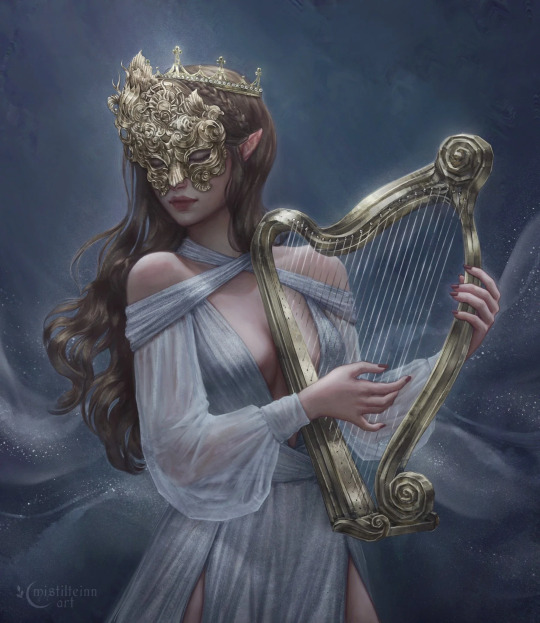
The Horn.
In ACOSF, it is also suggested that there is a 4th Dread Trove item (made of "age-worn born"). It seems to be popular consensus among CC and ACOTAR readers that this missing item is the Horn; the object tattooed into Bryce's back.
With this in mind, it is then worth noting that the Horn, when wielded at full power, can do anything. It can even allow someone to establish themselves as an Asteri.

Thus, if the Horn is part of the Dread Trove, then logic suggests that the other Dread Trove items - of which Nesta can control and summon - would have that exact same power.
And it makes you think; if one Dread Trove item, such as the Horn, can allow someone to establish themselves as an Asteri... what can three Dread Trove items do...?
Three items that Nesta can wield to their full power...
This gives Nesta... almost God-like power.
The Crown.
One particular Dread Trove item is of notable interest for this theory - and that is the Crown. Towards the end of ACOSF, readers are informed that the Crown can harness and manipulate the power of weather - bending it to the users will:

I now want to point out some interesting parallels between Nesta - and storms.
For starters, there are multiple occasions where SJM describes Nesta using "storm" imagery:
Stating that Nesta dances like a "night storm"

Nesta's rage is often likened to a "storm"

And Nesta even describes herself as a "storm cloud"

But perhaps the most salient example, is when Nesta comes face-to-face with Tamlin.
As Nesta starts to feel her rage - to threaten Tamlin with her wrath - thunder starts to grumble in the sky.

Then, in that final battle on Ramiel, where Nesta faces off with Bellius - lightning is mentioned multiple times (more times than what the below screenshot conveys!)

In fact, Sarah's use of thunder and lightning in this scene was so overt, that many readers started thinking about Thurr - the storm deity mentioned in Crescent City 2 (who presumably could wield thunder and lightning). As a result, many theories started popping up about Thurr's connection to Ramiel and the Illyrians (that maybe Thurr was even an Illyrian himself!)
However, what if the thunder and lightning had nothing to do with the Illyrians... but Nesta instead.
And dare I say it... what if Nesta IS Thurr?
And, in future books, through the use of the Dread Trove - most notably the Crown... what if Nesta will harness the power and lightning and thunder?
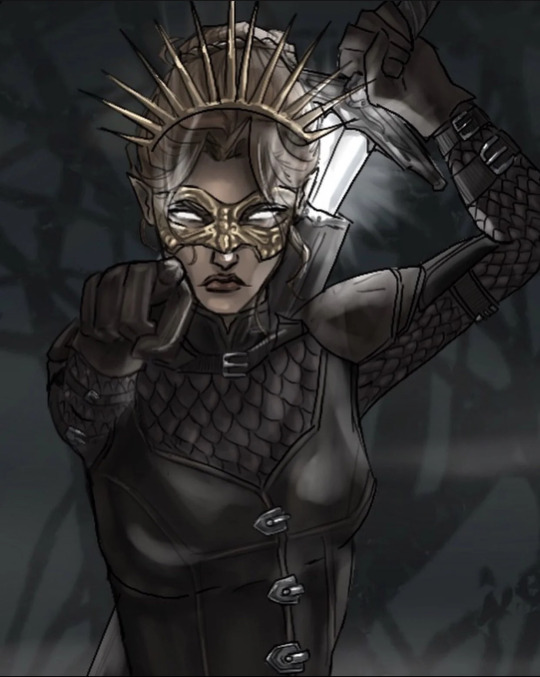
Thurr.
We are first introduced to Thurr in the very first chapter of Crescent City 2 - Bryce notices a statue of a fae male using a hammer - lightning is cracking, and he is forging a sword.
"On it, a powerful Fae male stood poised above an anvil, hammer raised skyward in one fist, lightning cracking down from the skies, filling the hammer, and flowing down toward the object of the hammer's intended blow: a sword."
Now, who is the only other character in the SJM universe who also raises a hammer, and forges a sword - in the exact same manner?
Nesta.
"Nesta's arm arched above her, the hammer gripped in her clenched fingers. It was a dance, each of her movements timed to the ringing echo of the hammer on the blade. She pounded the sword to a music no one but she could hear."
And, is it then any coincidence that the swords Nesta created emitted "iridescent sparks" and "crackling magic"....?

Which, is also the exact same description of the Starsword when Hunt filled it with his lightning...?
However, you're probably thinking: "But Thurr was a man!"
You've also probably picked up on Thurr sounding just like Thor - the Norse God of thunder and lightning - and also a man.

But, what if history got it wrong...?
What if Thurr was instead a woman?
Because, when you look at SJM's Pinterest board for Twilight of the Gods (her rumoured next series...)

A little closer...
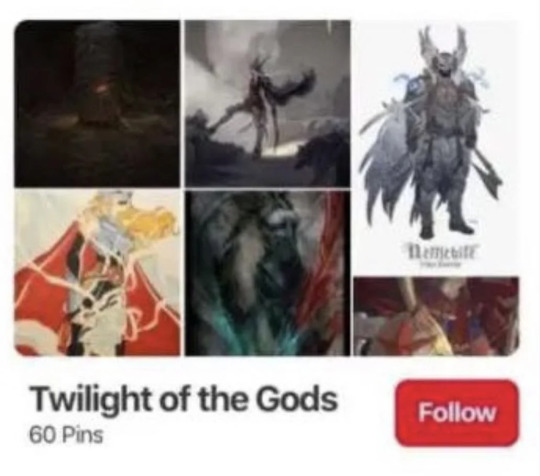
That's LADY THOR!
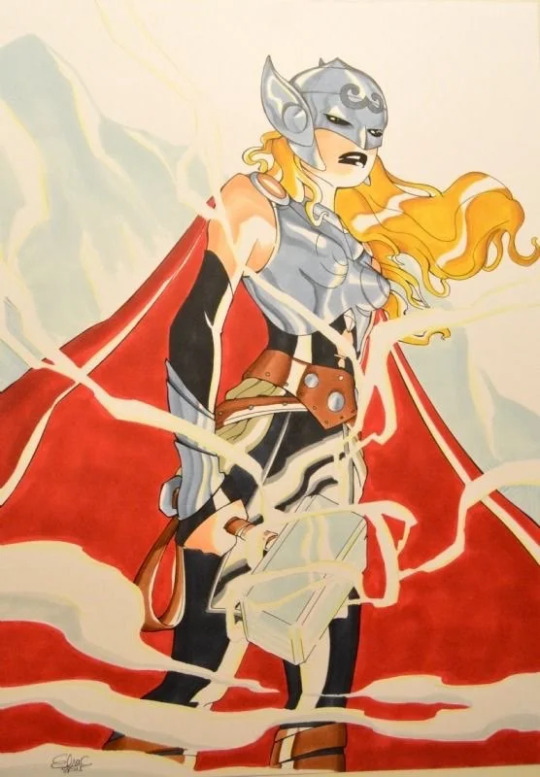
And, you can't tell me that Nesta as Lady Thor - or rather, Thurr - isn't so damn fitting (especially if we get a scene where she's leading the Valkyries into war...)
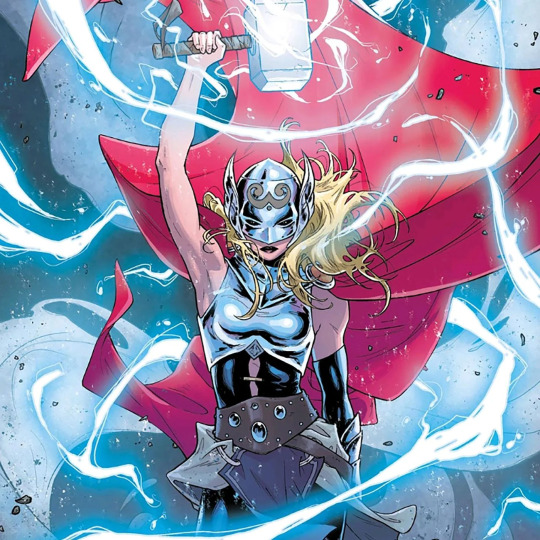
Ancestry.
Going back to that statue of Thurr, it was rather interesting that Bryce's father (Randall) likened it to Hunt - to which Bryce then joked that the statue was a "long lost relative" of Hunt's.
We know Hunt has similar lightning and thunder powers. They must have originated from somewhere, but strangely... no other character in the SJM universe possesses such power.
Unless, they haven't possessed it... yet. Given that this theory operates on the different timeline hypothesis; what if we are yet to see Nesta wield these powers, achieve her status as Thurr - and her (and Cassian's) descendant is Hunt?
Although, it is rather interesting that Hunt is said to look exactly like the statues of Thurr. If Nesta was Thurr - but this detail was twisted throughout history, replacing her with a man - what if the figure people currently know as Thurr, is Nesta and Cassian's son instead?
Is that who Hunt descends from...? (Or, could he be his father...?)
I mean... many readers have commented on the likeness between Hunt and Cassian.

And, let's not forget that Nesta and Cassian's bargain tattoo was an eight-pointed star - the symbol of the Starborn fae.
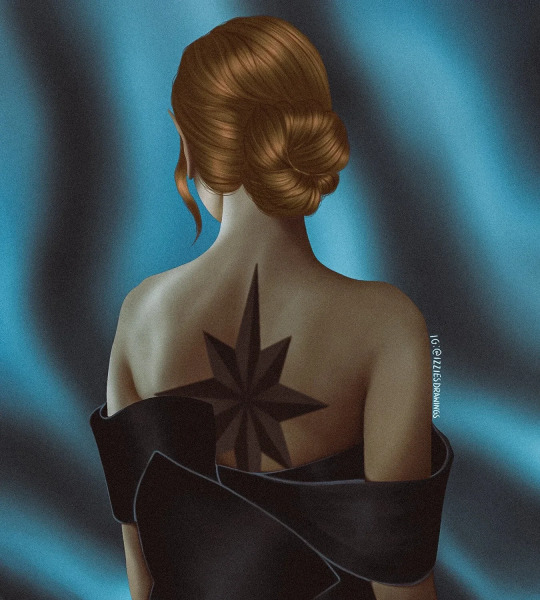
We also know that "Project Thurr," the Dusk Court, and the Starborn are seemingly all connected...
So, although it's crazy to think about, perhaps it's not out of the realm of possibility.
I'll guess we'll have to wait and see! ⚡️⚡️⚡️⚡️
#acotar#acotar theory#nesta archeron#pro nesta#nessian#sjm theory#sjm multiverse#sjm crossover#sjm theories#sjm universe
124 notes
·
View notes
Text
„Mars, proud of his task, and still aflame in his burning Chariot, tugged the reins leftwards. He had just reached His journey’s end, plunging from the sky, when Venus Took her stand fearlessly there before his horses. They Reared back, their rigid manes subsiding in supplication. Then leaning against the top of the shaft, her tearful face Averted, while the horses bowed their heads and champed The foaming bit before their mistress’ feet, she spoke out:
‘O finest of fathers, war against Thebes, is it war you plan, The destruction of your own descendants? Harmonia’s race, And the union we celebrated in heaven, and these my tears, Do they not deter you, madman? Is this the reward for my Shame? Is this what my lost name and honour, and Lemnos’ Net of chain deserve from you? Go your way, freely, yet Elsewhere Vulcan defers to me, and my wronged husband Though angered, serves me yet. If I ordered him to sweat For me, spending sleepless nights at his everlasting forge, He would be pleased and toil at new weapons, even for you. But you – I seek to move stone, a heart of bronze, with my Requests. Yet regarding this alone I entreat you, simply this: Why did you have me wed my dear daughter, Harmonia, To a Tyrian husband, those fatal nuptials, boasting that Tyrians of Cadmus’ serpent-blood, a race descending From the line of Jove, would be renowned in battle, their Hearts eager for action? How I wish the girl had married Beyond Thrace and Boreas, beneath the Sithonian Bear! Was it not shame enough that Venus’ daughter slithers Across the ground, shedding venom over Illyrian turf? Yet now an innocent people –’
Here the lord of war Could stand her tears no longer. Switching his spear To his left hand he leapt from his tall chariot in a trice, Clasping her to his shield, bruising her in his grip. Then with fond words he attempted to soothe her. ‘O my solace after war, my sacred delight, my soul’s Only peace, you alone of the deities have the power To face my weapons without harm, to stand before These steeds though they neigh amongst the slaughter, And snatch this sword from my hand. I do not forget That marriage of Sidonian Cadmus, nor your loyalty (Seek no pleasure in false reproaches!): I’d sooner, God though I am, be plunged in my uncle’s infernal Deeps, and be led helpless among the pallid shades. Yet, charged with carrying out the Fates’ warnings, And the supreme father’s will (since Vulcan is no fit Choice for the task) how can I oppose Jove or flout His decree? Even now I saw the earth, sky and sea Tremble at his words (what power!) and saw the ranks Of deities cowed. But, have no fear, love, in the end Since no power can prevent it, I will be there when Those two nations battle beneath the walls of Thebes, To aid them, allied in arms. Through blood-drenched Fields you’ll see me seal the Argives doom, nor will I Disappoint you. It is my right, the Fates agree.’”
– Statius, the Thebaid
13 notes
·
View notes
Text
Prende
Prende or Premte is the goddess of dawn, love, beauty, fertility, health and protector of women, in the Albanian pagan mythology. She is also called Afër-dita, an Albanian phrase meaning "near day", "the day is near", or "dawn", in association with the cult of the planet Venus, the morning and evening star. Her sacred day is Friday, named in Albanian after her: e premte, premtja (Gheg Albanian: e prende, prendja). In Albanian mythology Prende appears as the daughter of Zojz, the Albanian sky and lighning god.
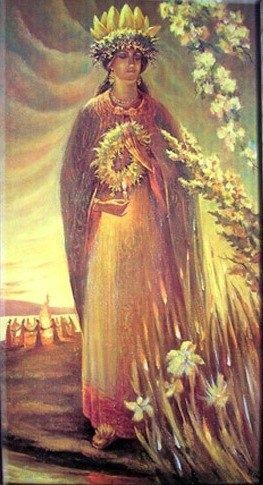
Thought to have been worshiped by the Illyrians in antiquity, Prende is identified with the cult of Venus and she was worshipped in northern Albania, especially by the Albanian women, until recent times. Originally a pre-Christian deity, she was called "Saint Veneranda" (ShënePremte or Shën Prende), identified by the Catholic Church as Saint Anne, mother of Virgin Mary. She was so popular in Albania that over one in eight of the Catholic churches existing in the late 16th and the early 17th centuries were named after her. Many other historical Catholic and Orthodox churches were dedicated to her in the 18th and 19th centuries.
Dialectal variants include: Gheg Albanian P(ë)rende (def. P(ë)renda), Pren(n)e (def. Pren(n)a); Tosk Albanian: Premte (def. Premtja), Preme (def. Prema).
Prende is also called Afërdita (Afêrdita in Gheg Albanian) in association with the cult of the planet Venus, the morning and evening star, which in Albanian is referred to as (h)ylli i dritës, Afërdita "the Star of Light, Afërdita" (i.e. Venus, the morning star) and (h)ylli i mbrëmjes, Afërdita (i.e. Venus, the evening star). Afër-dita, an Albanian phrase meaning "near day", "the day is near", or "dawn", is the native Albanian name of the planet Venus. Afro-dita is its Albanian imperative form meaning "come forth the day/dawn".
The Albanian translation of "evening" is also rendered as πρέμε premë in the Albanian-Greek dictionary of Marko Boçari.
In northern Albania, Prende is referred to as Zoja Prenne or Zoja e Bukuris "Goddess/Lady Prenne" or "Goddess/Lady of Beauty".
The Albanian name Premtë or P(ë)rende is thought to correspond regularly to the Ancient Greek counterpart Περσεφάττα (Persephatta), a variant of Περσεφόνη (Persephone). The theonyms have been traced back to the Indo-European *pers-é-bʰ(h₂)n̥t-ih₂ ("she who brings the light through").
The Albanian phrase afro dita 'come forth the day/dawn' traces back to Proto-Albanian *apro dītā 'come forth brightness of the day/dawn', from Indo-European *h₂epero déh₂itis. The theonym Aprodita is attested in Messapic inscriptions in Apulia.
In the Albanian pagan mythology Prende is the goddess of dawn, love, beauty, fertility and health. She is considered the Albanian equivalent of the Roman Venus, Norse Freyja and Greek Aphrodite.
According to some Albanian traditions, Prende is the daughter of Zojz, the Albanian sky and lightning god. Associated with the dawn goddess, the epithet "daughter of the sky-god" is commonly found in Indo-European traditions.
According to folk beliefs, swallows, called Pulat e Zojës "the Lady's Birds", pull Prende across the sky in her chariot. Swallows are connected to the chariot by the rainbow (Ylberi), which the people also call Brezi or Shoka e Zojës "the Lady's Belt".
The common Albanian name nepërkë for the venomous snake adder, viper appears in the Arbëresh variety of Calabria as nepromtja, probably based on Prende / Premte.
5 notes
·
View notes
Text
Carynthian
For @nessianweek day 7 (but could also be a late day 6). So, ever since hearing about that SJM interview, with the original plan for the Rite in ACOSF, I’ve not been able to stop thinking about Cassian watching Nesta through a mirror. And thus, this fic was born— one where Eris isn’t captured, and one where Nesta climbs the mountain with her sisters and becomes carynthian the way she should have in canon. It’s almost 5k of pure angst but it’s okay, because there will be a part 2 at some point soon, full of nothing but fluff and a soft, fussing Cassian. Yknow, just to make up for all the heartache. (Also on AO3) (*update* - chapter 2 is here)
**********
Cassian had been wounded countless times in his long life. Acquired more scars than he could count, found himself on the wrong side of a keen blade more times than he cared to admit. Yet no injury, no wound, could compare to the pain of landing in Windhaven and finding Nesta gone.
Not just gone— taken. All three of them, his mate and his friends, plundered and left alone, thrust unwillingly into the Blood Rite.
It was a dagger between his ribs, a knife in the heart, and he couldn’t stand in Emerie’s house a second longer. The scent of their fear lingered, sticking to the back of his throat. Bitter and acrid, it was too much to bear, and he couldn’t breathe in there, couldn’t look at the bed that still smelled like Nesta, the blood on the floor that said she’d not gone without a fight.
He tore through Emerie’s front door but didn’t feel the cold as he sank to his knees. His strength and his restraint departed, and he plunged his hands into the snow, clenching his fists to the point of pain. He was nothing but a maelstrom of blind, molten rage, undercut with a fear so incapacitating he could barely breathe, barely move.
He had to— Needed to— Couldn’t just—
Gasping, Cassian sought the other end of the bond bridging his soul and Nesta’s. He grasped at it, clawed with invisible hands, cast around for the other end of that tether. Desperate, frantic, he tried, but it slipped through his fingers as he fell forwards onto his hands. Cut off, she was cut off from him and he couldn’t reach her and—
A sob cleaved his chest, burning in his throat as he muttered her name over and over and over— Nesta, Nesta, Nesta. A lament, bleeding and raw.
Mother and Gods above, his last words to her had been ones of anger— and now his mate was in the killing fields, and it was enough to make him descend into primal, terrible, panic as his tormented hands tried to find purchase in the snow. Scrambled for something to hold onto.
There was nothing.
He was the most powerful Illyrian in centuries. Enalius reborn. A warrior god, blessed beyond measure with power— but what fucking good was any of that now?
What good were seven siphons and a mighty reputation when he couldn’t reach the woman he loved, couldn’t save her? “You know the laws,” Rhys had said, but fuck the laws. Fuck everything, because—
Because he’d never even had the chance to tell her he loved her. Never found the right moment, and oh, how he regretted it now. She was gone, so far away, and all he could do was pray, beg any deity that would listen as he kneeled broken in the snow.
“Come back to me,” he whispered to the wind. A broken plea, a desperate entreaty. “Come home to me, Nes.”
***
The clock ticked. A metronome of grief, it ticked over, seventy-two hours turning to seventy-three. Three days slipped into four and suddenly, Cassian had gone four entire days without her. He’d counted each minute, each second, and with every single one that passed, the knife twisted deeper, delved further into his heart.
Azriel had found him in the snow. Said something about going home, but that was ridiculous, because home lay to the north, with Nesta, wherever she was. Az had brought them back to the House of Wind, but this wasn’t home. Not without her, not anymore. Without her he was lost. Rudderless and trying to navigate a tempest sea— and all he could do was wait. Wait, and pace, and wait.
Azriel sat in a chair by the fireplace now, watching as shadows darted in and out in their search for information. Cassian wasn’t entirely sure why they even bothered— they couldn’t cross into the forests around the slopes of Ramiel, so all they delivered was news of the camp lords readying to meet those that finished the Rite when the seven days were done.
Not a whisper about Nesta or Emerie or Gwyn, and Cassian had almost broken a window when they’d first brought back news of Devlon instead of the Valkyries. Who gave a fuck what the lords were doing, when it was Nesta and Emerie and Gwyn who mattered now? Who fucking cared what preparations they were making, when Nesta could have lain unbreathing since that very first day?
That thought had him spiralling. Picturing his mate— his beautiful, fierce mate lying lifeless in the snow— A strangled, feral, sound left him, one of anguish, and Cassian slammed a fist onto the nearest table, shattering the silence and splintering the polished surface. It cracked from edge to edge, breaking open and it was fitting, really. Cassian felt himself splitting open with every second that passed, every night he spent sleepless.
“I can’t do this,” he croaked. The most he’d spoken in hours. If Az was surprised by the outburst, then he kept his face carefully blank. “What is she’s—”
Dead, but he couldn’t do it. Couldn’t say it out loud. What if she’s dead.
Azriel shook his head, blue siphons blazing. “You’d know, Cass.” Smoothly, he rose to his feet and crossed the floor in three strides. A scarred hand rested over Cassian’s fractured heart as he said, “You’d feel it.”
“Would I?” Cassian asked hoarsely, voice cracking. The bond was silent, so deathly quiet that it was like screaming into a void every time he tried to tug on it, to find the end that was connected to her. He tried— every few minutes, he tried, but there’d been nothing, not a whisper echoing down that bridge.
“Yes,” Az nodded, eyes softening, sharing his concern. He hadn’t left him alone for days— had been there as Cassian paced, refusing to sleep or eat. The House was worried too, kept delivering fresh tea and building up the fire. When the sun set, it gave them whiskey. It was fussing— but the pile of books the girls had left abandoned days ago remained untouched. The House refused to move them, and Cassian didn’t touch them either, as if they were both of them hoping that, at any minute, their Valkyries would be back, picking up where they left off.
I miss them too, Cassian wanted to whisper to the lights that flared every now and then in the sconces. The House’s way of asking if there was any news, he supposed.
He was looking at those books - thinking of the way Nesta’s brow furrowed in concentration when she read, the way she’d bite her lip slightly, blush, when she was reading smut and didn’t want him to know - when one shadow scurried across the floor. Hurried up its master’s arm and made Azriel blink once, twice. Cassian’s heart lurched— What did the shadows say, oh gods above, what had they found—
It could have been no more than ten seconds— no more than that, as Azriel listened to his shadows and Cassian waited, panic rushing through him as his knees almost gave way. No more than ten seconds, but it felt like an eternity— as if time had slowed, halted. Eventually, Azriel dismissed the shadow with a flick of his wrist and offered Cassian a wan smile.
“I know how you can check on her.”
***
A magic mirror. A magic mirror. Kept in the Hewn City along with the Veritas orb and the ouroboros mirror— he’d been a fool not to remember it sooner, but the thing had been hidden in the Court of Nightmares for so long that it had all but passed out of memory. That is, until Azriel’s shadows had remembered, and Az had departed instantly, returning within the hour bearing a velvet-wrapped parcel and a wary expression.
“Ready?” Az asked, throat bobbing as he swallowed. Even the spymaster was nervous, and Cassian's throat went dry, terrified of what awaited them within that mirror.
“No,” he admitted, but nodded regardless as Azriel set the mirror on the low table before the sofa, propped it up against Nesta’s books.
The world seemed to still, to hold its breath, as Azriel drew the fabric away from the surface of that mirror and first… First Cassian saw only himself. Saw a male gone mad with terror, haunted by words he’d left unspoken. He saw Az too, saw the concern in his own shadowed eyes echoed in the spymaster’s anxious gaze.
And then— He saw Nesta.
He saw Nesta.
For the first time in days, he saw her, and he felt hollow— felt like he’d been cut right down to the quick, because he’d not expected seeing her to hurt this much. She was running, Gwyn and Emerie by her side, each of them wearing leathers at least three sizes too big. They were breathing, alive, and running— running for a valley and a rope bridge strung across a gulf. They had found one another, just as he and Az and Rhys had, but any gladness he felt was dwarfed, swallowed entirely as he noted the smear of blood on Nesta’s cheek. Her hands, bruised and cut.
“She’s hurt,” he murmured mournfully. His soul keened as he took her in, alive and breathing yes, but hurt, and it was fucking killing him, as if her injuries pained him too. Every instinct he had screamed at him to get her, find her, wrap her in his arms and hold her so tightly— but she was so far away. Out of his reach, and all he could do was watch, hands outstretched towards the mirage of her.
“She’s alive,” Az reminded him carefully. “They all are.”
More than alive— they were fighting, barrelling towards the bridge, so close to the foot of Ramiel. They’d made it far— in four days they were further along than he and Az had been in their own Rite, and if Cassian hadn’t still been so fucking terrified, he’d have taken a moment to cheer, to kiss the surface of that mirror, because they were racing towards that mountain.
They had almost reached that swinging bridge when Az swore.
“What the fuck is that,” he asked sharply, leaning forward as shadows skittered along the edge of the mirror. Cassian wasn’t listening, didn’t care, watching only Nesta’s feet as she ran, dodging rocks and uneven ground. “Cass,” Az pressed. “At Emerie’s hip. What the fuck is that? It looks like—”
Cassian followed his brother’s gaze and saw— the hilt of a dagger.
The world tilted, and even though Cassian was already sat down, he felt weak, needed to lie down as the breath left his lungs in a violent gasp. Unmistakably, there was a weapon sheathed at Emerie’s hip. At Nesta’s too, and Gwyn’s. Someone had put weapons in the Rite, and whilst he was glad the Valkyries were armed with proper steel, he felt hollow, bottomed out as he realised that full-grown Illyrian warriors weren’t attacking his mate with makeshift weapons— no, they had real blades. Real steel. He jumped to his feet when he saw arrows.
With trembling hands, he tapped his siphons, bringing out his armour. Enough— he’d seen enough. “No more,” he said, voice shaking with barely contained fury. Barely contained dread. “If the Illyrians want to hunt me down and execute me, just let them fucking try. I’m getting them back, if it’s the last thing I do—”
“Cass,” Azriel interjected, rising to his feet too.
“There are fucking weapons in there, and I won’t sit here and wait Az, not when this this is rigged against them—” He swatted at the shadows twined around the door handle like a lock, considering just kicking the whole thing down, because he had to get to her, couldn’t watch one more arrow miss her by a hairsbreadth—
Wouldn’t just sit there and wait for his mate to die—
“Cass,” Az repeated, sharply this time. Loudly. “Look.”
The bridge was gone.
Stretching across that chasm was nothing, and on the other side stood all three Valkyries. Blood streamed down Gwyn’s leg, and Cassian’s heart stuttered as they used a stolen shirt to bind Gwyn’s leg, to stop the flow of blood, but— their pursuers were on the other side of the cliff.
“The lords won’t stop it,” Az muttered darkly. “You know that. Even if it’s been interfered with, they’re too proud to admit it, and too stubborn to pull out now.” He shook his head as Cassian’s stomach sank, as his fingers fell away from the door handle.
“I can’t do nothing, I can’t just—“
“What’s your plan then, General? Storm in there, pull them out and then— what? You’d have to slaughter every commander, every camp lord. Leave Illyria in ashes.”
Cassian’s siphons burned. “You expect me to sit here and watch them die? Watch Nesta die?”
Az shook his head. “They can do this,” he said quietly, turning his gaze back to the mirror, where the Valkyries had rested for only long enough to bind Gwyn’s leg. Swallowing, Az blinked as they grew closer to the mountain with each step. “They remind me of us.”
“Yeah,” Cassian breathed, barely taking his eyes off Nesta long enough to blink. He drew in a stuttered breath, damn near trembling as he returned to the sofa. He reached out, drifting his fingers over the smooth, glassy surface, longing to feel her skin beneath his hands instead.
As night dawned and darkness deepened, Cassian remained by that mirror. Didn’t sleep, didn’t move. Until the sun came up, Cassian kept his vigil.
***
Nothing in the world could have prepared him for the sight of Nesta at the base of Ramiel. The mountain, all but hallowed ground, and the stars above— the closest thing to relics Illyrians had, the nearest thing to religion. Artkos, Oristes and Carynth glinted overhead, sacred, but as Nesta looked up to the summit, light glancing off her jaw… Relics and religion meant nothing, paling next to her.
Oristian.
They were Oristian by right now, and if Cassian weren’t so overcome with terror, if his eyes weren’t burning from so many hours without sleep, then he’d have wept with pride. It wasn’t that he didn’t believe they could do this— wasn’t that he doubted them, or lacked faith. It was that he knew what awaited them up that mountain, wanted to spare them the pain of climbing its slopes.
It was that his every breath was dogged with a terrible, gnawing panic that something could go wrong, and now that there were real weapons in the Rite…
How could he be expected to sleep, knowing that?
As he watched, Nesta pointed to a path leading south. Gwyn shook her head, but Emerie pointed to the blood soaking through the shirt they’d used as tourniquet on the priestess’ leg. The path led away from Ramiel— they could take it, wait out the remaining few days and be brought home safe as soon as the Rite was over. Go south, Cassian urged, nodding as Nesta pointed to the path again. Please—
Please come home to me.
He didn’t need to look at Azriel to know he was thinking of the same thing— remembering their own climb up that mountainside. Their agony, their blood mingling in the snow as exhaustion threatened to consume them. Three paths up, and though only one was known as the Breaking, there was no way of making it up that mountain unscathed. No path that didn’t leave you gasping, aching, bleeding, broken in a hundred different ways.
Don’t. He wished they could hear him, wished his words would reach. Don’t— you’ve done enough. Proven enough.
But Gwyn was pointing adamantly up at the mountain, tears shining in her teal eyes. She spoke at length, and then Emerie was crying, too. When Nesta’s own tears began to fall, Cassian cursed every inch of distance between them, hating that he could do nothing to ease her pain. His own grief deepened with every tear she shed, and when, as one, they spurned the path to the south and began the ascent as sisters… Cassian bowed his head. In reverence, but in despair, too.
“Carynthian,” Az breathed, and a shiver crawled down Cassian’s spine. Though he was premature giving them the title Carynthian, there was no doubt in the spymaster’s face. No doubt at all. They’d make it to the top, touch that stone.
Carynthian.
His Nes— His Valkyrie, his Carynthian.
And to think, he’d never told her he loved her. Never, even though it was the most fundamental truth. She always had been his equal and now— Gods, now there was no denying it. Nesta was the other half of him, and if the Illyrians weren’t terrified of her before, then they’d tremble now. They’d fall to their knees as she passed, and if they didn’t, he’d take out their kneecaps and force them to.
“Oh, sweetheart,” he whispered to himself, eyes drifting closed as she began the ascent up the mountain that had damn near killed him, once.
Please, he prayed. Please let her survive this.
***
It was all he could think for hours. All he could murmur, whisper like a mantra. Please, please, please. As he watched the Valkyries take each step, as they stopped to catch their breath, to let Gwyn rest— please. As the House stopped building up the fire, stopped refilling the teapot as if it, too, was waiting with bated breath— please.
The summit was so close, just another few hours and they’d make it, they’d be home, and Cassian dared to hope for the first time in days, because it was just there, just a little bit further and—
Nesta stopped. The world came to a halt as she stopped dead, swayed— and fell. Fell right back down to the Pass of Enalius, and Cassian couldn’t breathe, not as he saw each rock that grazed her skin, felt each blow. Even Azriel hissed, a sharp breath sucked in between gritted teeth, and Cassian’s siphons were pulsing, raging, as he watched, helpless, as all those yards gained were yielded, and the summit seemed further than ever.
The nightmare didn’t end, only deepened as Emerie’s lips parted and Cassian read the words he couldn’t hear. They’re coming— as Nesta took up a blade. As the lips he’d kissed swollen just days ago uttered the one word that made his blood run cold. No.
Azriel inhaled sharply as Gwyn protested. As Nesta hit the pressure point Cassian had taught her and the priestess went out cold. Emerie pleaded. Begged. And Nesta gripped her sword tighter.
“No,” Cassian echoed, hands grasping at the mirror, clawing at the surface. The bevelled edges sliced open his finger, and his blood hit the glass as Gwyn’s lingered in the snow. He watched as Nesta used her sword, drew a line— just as Enalius had, all that time ago. The world blurred at the edges, and all he could focus on was her, gripping that shield and clutching her sword. She hadn’t known that Enalius had drawn a line, too. Didn’t know that part of the tale.
In his bones, Cassian knew that he was watching his mate make her last stand. He’d promised her time— on that battlefield, he’d promised that they’d have time, and they’d been given so fucking little. It wasn’t fair, wasn’t right, that this was the way it ended, that this was how their story finished.
He might have been screaming— might have been shouting, but his ears were ringing and his vision tunnelled as the first of her attackers rounded the corner and came into view— too many, there were too many of them and she was so vastly outnumbered that the odds were stacked against her. His tears were thick and fast, grief consuming him. Subsuming every facet of his being, a tidal wave of it, too terrible to bear, as he repeated the same word over and over again: Please.
***
The dead were scattered around her, and Cassian’s heart pounded. He didn’t mourn the loss of any of them. Didn’t grieve, because Nesta was still standing, and only one of them remained— but she was exhausted. He could see it in her face, in the set of her shoulders, and gods above, Cassian had been a warrior long enough to know when the fight was almost gone. Knew what it looked like when there was nothing left.
The snow fell heavily, the wind raged, as if even the elements were furious, didn’t want to see her meet her end this way. Cassian raged too, barely feeling Azriel’s hand gripping his shoulder, not hearing the words the shadowsinger muttered by his ear.
The nameless warrior lunged, and with one swift hit, knocked Nesta’s shield aside.
Her gaze followed, turning to see where it landed, and Cassian roared, almost upending the table as he shot to his feet. No, no no no— he knew what would happen the moment she turned her head, let her attention drift. The bastard knocked her sword away too, and Cassian could only watch, screaming, as his blade swung for her. She ducked— took a hit to the arm instead, and Cassian couldn’t breathe— couldn’t breathe, couldn’t think, couldn’t tear his eyes away.
I love you, he thought, but he might have said it out loud. Might have screamed it as the blade nicked her cheek. I love you, I love you, I love you.
Az swore as Nesta was knocked to her back. Her nose was bleeding. Her mouth, too. Crimson, stark against the snow and the ice. The warrior - who wouldn’t live long even if he survived the Rite - tossed aside his weapons as Nesta struggled to her hands and knees. More blood spilled, but she was a fighter— always had been.
His Nesta— his brave warrior heart, always.
“Can you read his lips?” Cassian asked numbly, a cold, ice cold fury running through his veins as he beheld the face of the Illyrian swinging for his mate.
Azriel huffed a bitter, vengeful laugh. “He thinks she can’t take him in hand-to-hand combat.”
A vicious, cruel, smirk tugged at Cassian’s lips as, darkly, he answered, “He’s never fucking met her.”
“No,” Az agreed. “I hope she fells him with one good punch. I hope his skull caves in.”
Murderous, Cassian agreed. Nesta opened her mouth, and as Cassian leaned forward, he didn’t need Az to read her lips this time. Cassian could do it himself, as if he could hear her.
My mate taught me.
With trembling hands, Cassian reached out to brush the surface of the mirror again.
My mate taught me.
My mate.
***
“Don’t tuck your thumb,” he’d told her, oh, so long ago now.“You’ll break your fingers if you hit like that.” He watched her now— throwing punches just as he’d taught her.
That’s it, he murmured as she landed a punch that Cassian was certain broke the bastard’s nose. That’s it, just like that. Blood sprayed, but it wasn’t hers, and even though he’d seen battles turn in a blink, seen fortune’s wheel spin too many times to celebrate a victory before it was won— Cassian let himself hope, for one beautiful moment.
Only one— because in the span of a breath, in a single, stuttering, heartbeat, Nesta was on her knees, and this time she wasn’t rising— She crawled through the arch, breaking the line she’d drawn, and she didn’t realise, didn’t see, as the bastard behind her pulled a dagger from his boot, stepped forward, the blade glinting— Cassian’s breath stuttered, and he didn’t have time to cry out, couldn’t so much as blink, before the Illyrian was lunging, and Nesta hadn't realised, was still on the ground, and— The world was spinning as he descended madly into terror, down and down and down as he saw her eyes, the blue and grey he’d die for— Saw her realise, far too late, saw the flicker of fear as the blade neared her throat and—
His eyes snapped closed, his world crumbling to dust.
A single, solitary tear slid down his cheek. I love you, he thought. I should have told you. Should have spent all these months saying it, proving it, because I love you Nes, and I don’t know how to live without you, how to breathe without you—
“Cass,” Az whispered.
No. He couldn’t— couldn’t see her lying bleeding in the snow. Couldn’t open his eyes.
“Cass,” Az repeated, shaking his arm. “She’s alright, Cass, look.”
Alright?
Slowly, he looked. The dagger the Illyrian had pulled from his boot was buried in his own neck, Nesta panting as she rested against the rocks. He didn’t try to hold back his sobs, then. Cared for nothing as he saw her, breathing, looking up to the top of the mountain, where there had been no flash of light. Emerie and Gwyn hadn’t left, had waited, and now there was nothing between his mate and her sisters.
Nothing to stop them coming home.
***
There would be no welcome party in Windhaven or Ironcrest or any other Illyrian camp for the Valkyries. Instead, Cassian barrelled down the hall towards the library, the House throwing open the doors before him, dizzy with relief and thanking every star in the sky, every deity he could name, that it was over. Done.
After days of agony… He saw them. Saw her, and though he engulfed all three of them in a hug that could have broken bones, it was her scent he was inhaling. Her neck he buried his face in.
“Nes,” he said against her skin, pulling all three of them more firmly against him. They were filthy and tired, but healed and alive, and even Azriel stepped forward, swallowing thickly as Emerie mumbled something against Cassian’s shoulder, her words muffled. Gwyn huffed a laugh, and— home, home, they’re home.
The lights flickered, even the House desperate to welcome its favourite residents, and as Gwyn and Emerie freed themselves from his grasp, Cassian was left only with a familiar touch against his cheek, familiar fingers drawing through his hair.
Nesta.
His fingertips drifted across her jaw, down her neck and across her collarbone, palms skating down the side of her arms as he felt every inch of her. He cradled her face, overwhelmed and awed, breath catching as he felt her skin beneath his at last, and then, he was kneeling—
Falling to his knees before her, head bowed, in awe and pride and supplication. She had so many titles now— Lady Death, Valkyrie… Carynthian. She was everything, his entire world wrapped up in a bundle of sarcasm and sharp words, and when she curled her fingers under his chin, urged him to look at her, Cassian took her hand, weaved their fingers together and gripped it so tightly there wasn’t a force in the world that could pull them apart.
Not again.
“I love you,” he rasped. “I didn’t say it before— I never said it, and I should have—”
Nesta shook her head. Dropped to her knees too, taking his face between her palms, and when she whispered “Cass”, Cassian wrapped his arms around her, hauling her to his chest, so close that every part of her was pressed against every part of him. The blood from her leathers seeped through his shirt, right down to his skin, but her arms were around his neck, clinging to him, and nothing else mattered, nothing. He felt her tears warm on his neck, the sobs that cut her throat, and he held her as she fell to pieces.
He fell to pieces too, shattered entirely as they came apart together on the floor.
Distantly, Az murmured to Gwyn and Emerie. Something about finding them bedrooms and something to eat. Cassian heard their steps as they walked away, but neither he nor Nesta moved, unable to part, unwilling to let go.
“I love you,” he said again, making up for lost time. Pressing a kiss to the crown of her head, he shuddered as he thought of how close he’d come to losing her. He didn’t have words for anything else. In an hour or so, he was certain he’d be falling over himself to tell her how proud of her he was, how awed and how lucky— but now, as his world began to knit itself back together, all he could manage was I love you, over and over again as she sobbed in his arms.
107 notes
·
View notes
Note
Annon-Guy: Mind explaining each of the 5 Armies in Guilty Gear 2 Overture in terms of story, gameplay and functionality?
Sol's Army (and EX Sol)
Sin and Ky's Army
Izuna's Army
Dr. Paradigm's Army
Valentine Prime and Raven's Army
P.S. I understand Ky and Sin sharing an Army as they're Ilyrian Soldiers, but why does Raven have the same troops as Valentine Prime? (I know Raven is a DLC Character alongside EX Sol, but still)
The universal "term" for each is called a "Tribe".
In Overture, Tribes are just the term used for each army, though it has a more significant meaning to Dr. Paradigm and Izuna.
Paradigm's Tribe is his people... Gears though they are, they are still part of his family... same goes for Izuna's friends and family too.
In Sol's case... he is using a Soul Sinker Summoning method Izuna taught him to summon "servants" from his "Master Ghost" (which is a manifestation of Sol's Soul).
Each Servant requires Mana to be manifested, and the more Mana used the more powerful the Servant is.
Sol's Elite Servant is Queen, below her is the Gigant who has multiple forms depending on which mode Sol wants it to operate in.
In the case of Sin and Ky, their "Servants" are the Illyrian Army of Holy Knights. And while it's true they still use Mana to be summoned, it's more like they use Mana to "teleport" their troops to the locations they designate. Izuna does a similar thing when he teleports his friends to help him out.
Similarly to a Servant is a Mobile Minion... Sol's Mobile Minion is Hunchback, which he can summon with a bit of Tension along with the Mana he normally uses.
Sin's Mobile Minion is Humming Sword which acts like a familiar to Sin and helps him fight.
Valentine's Army is broadly called the "Vizuel", though it's vague on the reason why they are called that... the Vizuel are a manifestation of Valentine's Dark Will and Intent, so much like Sol's Servants, they are also comprised of Mana.
As for why Raven could use the Vizuel... in simple terms it's because he didn't have an Army of his own (in game), so the developers didn't have enough time to make Raven his own army.
But it is also possible for Raven to use Magic that manipulates his enemies in to fighting for him, similar to what Valentine did to Dr. Paradigm's Tribe of Gears, which Ky had to use a spell to undo the effect of.
Assuming one day that Raven DID get an Army Tribe of his own, I'm sure his servants would resemble his soul a lot like Sol's or Jack-O's servants resemble them to some extent.
Raven is a bit of a twisted character as an immortal, so most likely his Servants would be very tanky and absorb a lot of damage, so in terms of physical combat they would probably be an elite force.
Oh yeah, and before I forget, Dr. Paradigm's elite Servant Summon is Kokopelli... but he's technically NOT a servant and actually an Animal Deity... a Demigod you might say.
If you want to study more about Servants, read the Capture+Unit tag on my blog!
4 notes
·
View notes
Text
illyrian mythology reading list
ancient illyria: an archeological exploration // arthur evans
the illyrians // john wilkes
websites:
https://www.yoair.com/blog/anthropology-exploring-the-nuances-of-illyrian-religion-and-deities/
https://www.gtp.gr/LocInfo.asp?infoid=43&code=BALZIL&PrimeCode=BALZIL&Level=4&PrimeLevel=4&IncludeWide=1&LocId=60041
https://en.wikipedia.org/wiki/Illyrian_religion#:~:text=The%20Illyrian%20cult%20of%20the,in%20the%20form%20of%20serpents.
https://en.wikipedia.org/wiki/Category:Greek_mythology_of_Illyria
https://en.wikipedia.org/wiki/Category:Illyrian_gods
https://en.wikipedia.org/wiki/Category:Illyrian_goddesses
https://en.wikipedia.org/wiki/Nymphaion_(fire_sanctuary)
https://en.wikipedia.org/wiki/Paleo-Balkan_mythology
https://en.wikipedia.org/wiki/Albanian_folk_beliefs
https://en.wikipedia.org/wiki/Category:Hellenistic_Albania
https://en.wikipedia.org/wiki/Category:Albanian_culture
https://en.wikipedia.org/wiki/Category:Albanian_mythology
https://en.wikipedia.org/wiki/Category:Albanian_folklore
https://en.wikipedia.org/wiki/Category:Illyrian_culture
https://en.wikipedia.org/wiki/Category:Ancient_Albania
https://en.wikipedia.org/wiki/Category:Ancient_Epirus
https://en.wikipedia.org/wiki/Category:Illyria
2 notes
·
View notes
Text
Thank you @fiadorable for tagging me!
How many works do you have on Ao3?
28, plus 4 vids – plus a bunch of old stuff on Livejournal, FF.N and lost to time/the interne
2. What's your total Ao3 word count?
119,141
3. What fandoms do you write for?
Currently Star Trek: SNW, in the past Harry Potter, Pirates of the Caribbean, Doctor Who, The Thick of It, The Hour, Star Trek: DS9 & Battlestar Galactica
4. What are your top five fics by kudos?
Absence and Memory
Pirates of the Caribbean, Norrington/Elizabeth, Teen
She spent so much time searching for the heart of James Norrington, but it was not until he was gone that she was to find it.
For Honour a Heart’s Demise
Pirates of the Caribbean, Norrington/Elizabeth & Will/Elizabeth, Teen
James Norrington battles friends, foes, deities and destiny alike to atone for his sins and destroy Davy Jones. AU ending for AWE.
Five Ways of Avoiding Martian Sex
Doctor Who, Ten/Donna, Teen
It's not sex if you rationalise it.
Spinners of the Dead
The Thick of It, Gen, Mature
Britain suffers from a slight case of the dead rising and of course DoSAC is the only government department left standing. Never fear, Malcolm has a plan.
The Angry Spider by Malcolm Tucker
The Thick of It, Gen, Mature
"There once was an angry spider.
5. Do you respond to comments?
Always for my newer stuff. I went through a period in which I kinda quit fandom for a bit, fell behind in answering any comments, and when I returned it got too awkward to pick up on my older fics, so I don’t on those.
6. What is the fic you wrote with the angstiest ending?
I guess The Man Who Sold The World since it does end with the entire universe blinking out of existence, but that wasn’t me, that was canon.
Angsty endings purely from my brain – difficult as there’s many to pick from (I do love a bit of bittersweet), but I feel a bit guilty about First Solitary Separate Singular Complete.
7. What’s the fic you wrote with the happiest ending?
Also difficult. Probably A Pilot Connection, with the formation of the Enterprise bridge crew girls night.
8. Do you get hate on fics?
No.
9. Do you write smut? If so, what kind?
I have, but I’ve never published it. I’m not very good at writing smut, so it always remains a WIP.
10. Do you write crossovers? What’s the craziest one you’ve written?
Occasionally. Everything Yourself and Home is an Hour/Doctor Who crossover which isn’t that crazy because Randall and Lix are definitely companion material, but it does featuring Peter Capaldi’s character in The Hour, written before he was cast as The Doctor.
11. Have you ever had a fic stolen?
No.
12. Have you ever had a fic translated?
A couple of my very old Harry Potter fics were translated into Russian.
13. Have you ever co-written a fic before?
No.
14. What’s your all time favorite ship?
Of the ships I’ve written? Lix Storm/Randall Brown. It was six episodes over a decade ago and I’m still not over them. I'm just going to leave this link to my vid of them here.
15. What’s a WIP you want to finish but doubt you ever will?
A very long time ago I had a Neville Longbottom Gen fic which I abandoned with two chapters to go. I’ll never finish it, but feel really guilty about that.
16. What are your writing strengths?
Worldbuilding, plot, characterisation.
17. What are your writing weaknesses?
Describing emotions, describing pretty much anything, smut, showing not telling
18. Thoughts on writing dialogue in another language in fic?
I’d probably do what I did in The Illyrian Word for Disaster (which is a fic about language, albeit a fictional one) and write in English but italicised.
19. First fandom you wrote for?
Harry Potter
20. Favorite fic you’ve written?
This changes but currently my favourite The Endurance of Light, which I’m working on and slowly posting at the moment. The love is sustaining the effort.
1 note
·
View note
Text
Death in Illyrian polytheism

Burials
Some Illyrians buried their dead ones under the home's fireplace and gave them food and drinks regularly by lowering it down through the bars on the fireplace. The dead were believed to go to the underworld but could come out to protect the home and their loved ones, having the role of a guardian spirit.
Some Illyrians buried them in graveyards with tombstones. The process of a burial was sacred, symbolic and spiritual. Women would hold each other's hands and form a half circle, the leading woman would hold a ceramic bowl with a liquid offering in her hands. They would move side to side which is a characteristic of most postmortem dances. The men were mounting horses (horse is an important symbol and is considered a holy animal).
The grave was surrounded by small rocks in order to stop evil spirits from entering the grave and the opening to the underworld made specifically for the deceased.
Graves
Illyrians used to put items along with the deceased which they could later use in the afterlife. Most of them put things like dishes, utensils, jewelry, tools, weapons, coins, food, etc.
Heroic individuals would have an image of a warrior mounting a horse engraved on their tombstone, which would ensure that they stay heroic in their afterlife.
There was a possibility of an evil spirit disturbing the deceased so their family and friends would hold a ritual on their grave. They would get clay pots, hold it over the grave and then break it, which would disturb the evil spirit and destroy it entirely.
Snakes
Snakes were believed to be guardians of the grave. Killing a snake was seen as the worst thing one could do, especially if the snake was a guardian spirit of the deceased. Snakes would be engraved onto the tombstone and snake jewelry was buried along with the bones of the deceased.
Snakes are the most holy animals in all of Illyria. The word illyr means snake, so illyrians are believed to be snake-people and so they were called as such by Greeks and Romans. Illyrios, the ancestor of all Illyrians, was at his birth wrapped by a snake and it gave him divine powers. Snakes were worshiped because of their unusual body, silent way of moving and their ability to change skin, which reminded Illyrians of death, rebirth and immortality. Most Illyrians had a snake as a spirit guardian though other options were also possible, but every household's spirit guardian was a snake. Killing it would destroy lives and families.
Dracco and Draccena are a divine snake couple. They are gods in snake forms and were often depicted in artworks standing behind a warrior, giving him strength or protecting him, or the two of them helping the illyrian troops by killing their enemies instead. Snakes are the most important animals in this belief, and their imagery is found everywhere, from coins and pots, to armor and weapons.
Spirals
Spiral is one of the Illyrian symbols of the afterlife. Spirals on tombstones or on objects that are used in rituals symbolize the soul of a dead person.
It can also symbolize the complicated path which their soul has to go through before it gets to the underground. Goddess Anzotika is mentioned as a goddess which helps these souls through the spiral labyrinth. By carving out a spiral on a tombstone, Illyrians hoped to make the dead's path easier.
They also carved out spirals on shields and for good health and protection. Most people wore spiral shaped bracelets and jewelry with spiral symbolism.

Underworld deities:
Anzotika-Guides souls to the undorworld
Irija-Souls go to her motherly embrace after death
Dracco and Draccena-It was thought that snakes and underworld deities live in deep caves. The deceased would show themselves as guardian spirits in snake form, and Dracco and Draccena are rulers of all snakes
Bindus-Believed by Iapodes to be the ruler of the underworld
Medaur-Possibly, he is often seen with spiral and snake imagery. He is also a war god, war and death are closely connected
#illyrian#illyrian gods#illyrian paganism#illyrian polytheism#paganism#polytheism#gods#deities#illyrian deities#underworld
9 notes
·
View notes
Text
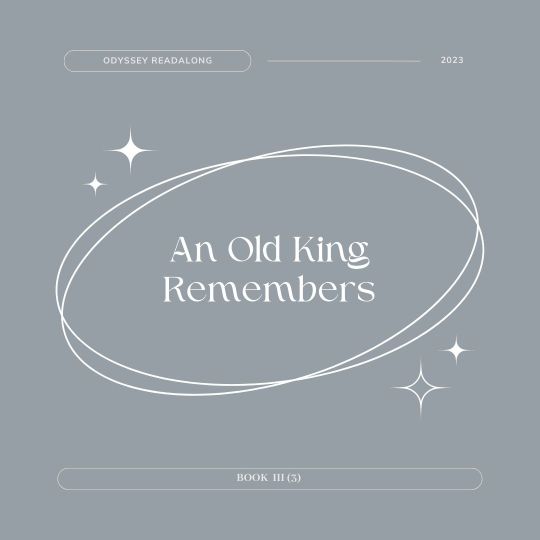

It's week 2 of the #OdysseyReadalong2023 (sorry for the delay!), and we've read books 3 & 4. I'm gonna leave some prompts for discussion about Book 3 below. 💙🌊
🌊 — King Nestor
In this book, Telemachus meets honest Nestor, who is “not one to tell a lie” (Od. 3-20), king of sandy Pylos (a town in Messenia, Peloponnese). For someone who values truth and honesty so much, isn't it strange how good of a friend he apparently is to Odysseus?
Nestor fought at Troy and tells Odysseus' son about his own journey in a very lengthy story. He mentions heroes like Achilles (who slayed prince Hector), Patroclus (companion of the aforementioned), Agamemnon (king of Mycenae, murdered by his wife Clytemnestra), Philoctetes (whose bow was essential in the final destruction of Troy), Menelaus (husband of Helen) and, of course, Odysseus, the cleverest of all. Out of the bunch, who is your favourite?
🌊 — Orestes and Telemachus
Speaking of Agamemnon, Nestor encourages Telemachus to take after the king's son Orestes, since he took an active role in the killing of his father's murderers, Aegisthus and Clytemnestra (his own mother). Telemachus is thus prompted to take revenge and deal with Penelope's suitors. However, Nestor wonders if Odysseus himself will return home to take his own revenge, either alone or with an army of Greeks.
Young Telemachus is still struggling to step up, though, but HE'S TRYING. In Od. 3.205-6, he says, “I wish the gods / would grant me that much power against those men”. After his disaster at the Ithacan assembly, where he spoke in front of an audience for the first time, Telemachus finds himself in an awkward position. But getting out of Ithaca and meeting his father's friends will be beneficial to his development, wouldn't you agree?
🌊 — Pirates
We also come across the very first mention of PIRATES! (Od. 3-73)
The earliest documented instances of piracy date back to the 14th century BC at the hands of the Sea Peoples who threatened the ships sailing in the Aegean and Mediterranean waters.
In antiquity, piracy was regarded as an honourable way of making a living, and peoples such as the Phoenicians Illyrians and Tyrrhenians were known as pirates. References are made to its perfectly normal occurrence in many texts, including in Homer's Iliad and Odyssey.
Did you know this “profession” was so old?
🌊 — Animal Sacrifice
We also encounter a very detailed description of animal sacrifice (in this case, bulls).
After being slayed, the animal's blood is collected and poured over the altar of the god. Then it is butchered on the spot and various internal organs, bones, and other inedible parts burnt as the deity's portion of the offering, while the meat is removed to be prepared for the participants to eat.
It was a very common practice in Ancient Greece to appease the gods. What's your instance on it? Would you have partaken in it, or would you have stood by your principles and risked having the gods against you?
🌊 — Eurydice
Nestor mentions his wife, Eurydice. Their children included Perseus, Peisistratus, Thrasymedes, Pisidice, Polycaste, Stratichus, Aretus, Echephron, and Antilochus.
However, it is an honest mistake to confuse her with the wife of Orpheus, whom he tried (and failed) to bring back from the dead with his enchanting music.
Did you make this mistake?
🌊 — Cassandra
When Nestor said, “some of us had neither sense nor morals” (Od. 3-133), he is alluding to the rape of Cassandra, the Trojan priestess
At the fall of Troy, Cassandra sought shelter in the temple of Athena, but was abducted and brutally raped by Ajax. This angered the goddess, and thus she was responsible for the death of Ajax.
The abduction of Cassandra was frequently represented in Greek works of art. Do you have a favourite?
🌊 — Athena
In my opinion, the owl-eyed goddess stood up the most in this book.
I found it so funny when she told Nestor to shut up and serve dinner after she had her fun pretending to be a mortal, making prayers and pouring libations! I also enjoyed when she turned into a vulture and left! She was bored and she peaced out!
She also told Telemachus that “the gods have blessed [him] in [his] life so far” (Od. 3.28). Do you agree with her?
And who was the most memorable character for you?
tags: @fangirlofallthefanthings
1 note
·
View note
Text
Happy world-building Wednesday! I am going to talk briefly about Marriage, Gender and Family Dynamics in Hengxing, the East Asian-coded country in my wip Epyllion.
First off! My favorite bit about marriage. The tradition of their wedding rings comes from the myth of the red string of fate that appears in East Asian and is rooted in Chinese mythology. From Wikipedia:
It is commonly thought of as an invisible red cord around the finger of those that are destined to meet one another in a certain situation as they are "their true love".[3] According to Chinese legend, the deity in charge of "the red thread" is believed to be Yuè Xià Lǎorén (月下老人), often abbreviated to Yuè Lǎo (月老), the old lunar matchmaker god, who is in charge of marriages.[1] In the original Chinese myth, it is tied around both parties' ankles, while in Japanese culture it is bound from a male's thumb to a female's little finger. Although in modern times it is common across all these cultures to depict the thread being tied around the fingers, often the little finger.
In Hengxing, when a couple is married they have a hand-fasting ceremony that involves tying a red string around the pinky of their left hand. The connection remains through the entire ceremony. Spouses wear corded rings made of red thread on their little fingers from then on to signify their status of being married. Very much like this!
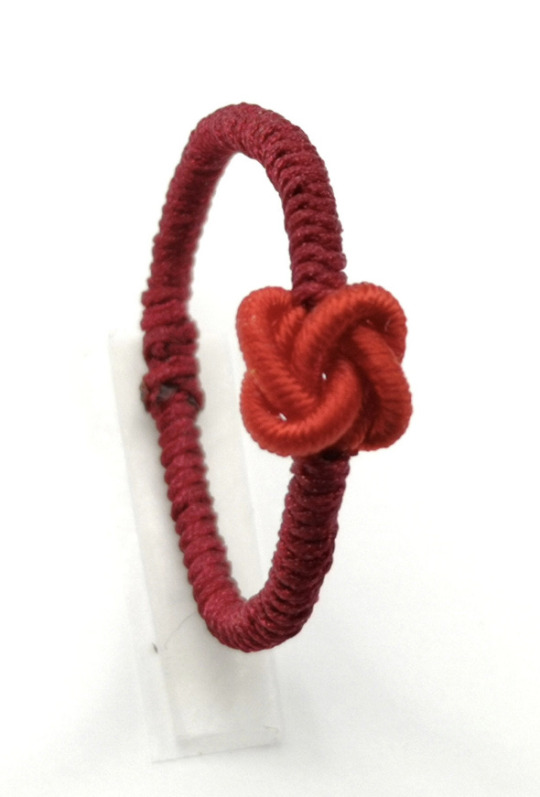
Some couples will forgo rings and instead opt to have a red line tattooed around their little finger. This is not a tattoo that many will get lightly as divorce is allowed in Hengxing and there is a bit of a social stigma around courting or “dating” someone with a tattooed ring from a previous marriage, unless that person is widowed. The idea being either the person is frivolous in their commitments or that the past love they bare the other person will doom the next relationship.
This is more of a feeling around the common folk though as political marriages are often done with the acceptance the spouse might not be their soulmate. The romantic notion of soulmates is very much a big cultural thing in Hengxing. Which leads to family dynamics!
Married nobles will often have official mistresses or lovers! And children by these relationships are considered part of the marriage. In Hengxing, blood ties don’t matter at all. Someone who is formally adopted is not an “adopted daughter/son” that is their daughter or son. Shi and Zhou, the protagonists mother and uncle, were the formally adopted children of the last Khan of Hengxing. They were war orphans! The title of Khan is not inherited but challenged and trialed for— so the Khan is free to adopt, marry or have children as they wish just like anyone else.
As a result, many people come from very large blended families and there is not so much a ruling class like in the other countries but a hierarchy.
The head of the household in each family unit is decided primarily upon merit and suitability. Gender is not a factor. With the issue of inheritance settled through formal adoption, gay marriage does happen, is accepted and is seen as normal. Transgender and non-binary people are also accepted and there are alchemists and sanguis who specialize in the aiding of transitioning and other gender-affirming procedures. (Sascha went to Hengxing for his own “top surgery”!)
Also because of the formal adoption, bastard children simply do not exist. And most Heng find the Mavronian and Illyrian obsession with their bloodlines very silly. This nonchalance most likely stems from a difference in history and the fact the Heng military does not rely upon spherests as Mavros does. While they do have a substantial number of spherests in their country, all are treated equally and promoted for their merits. Having a sphere definitely helps elevate some, but having a sphere is not idealized as it is in Mavros or commodified/vilified as it is in Illyrius.
1 note
·
View note
Text
undefined
youtube
Go check out my new video! I talk about the symbolism behind the Phrygian hat and its connection to the placenta, umbilical chord, and amniotic cap!
#paganism#pagan#paleo balkan paganism#slavic paganism#celtic paganism#norse paganism#thracian#dacian#illyrian#phrygian#phrygian cap#pagan gods#pagan goddesses#deities#placenta#umbilical chord#amniotic sack#europe#serbia#bulgaria#romania#balkans#nature#history
9 notes
·
View notes
Note
Admittedly, I sometimes wonder just... how the NC even works in canon. Sarah is probably not putting much thought behind it but it certainly is weird. They seem to be such a isolated and empty court as well, I wonder if there even are other noteworthy cities in the whole land besides Velaris and the Hewn City. What do you personally headcanon about it?
Anon I love these kinds of things, I absolutely love world building in my oc stuff! I liked CC because we had more development of the society but it is sadly lacking in ACOTAR.
This got really long so there it's under the read more...
The Night Court is a vast territory and we see NOTHING of it and it drives me insane. What are their main imports/exports? They eat a variety of food but we never hear of anyone being a farmer in the Night Court - however importing all of their crops and meat would be SO expensive. Who is growing their food? HOW are they growing it? If Winter is in perpetual winter, they can never grow crops surely? Summer is likely too hot. Only Spring/Autumn could be viable options to grow in the seasonal courts. Do Winter have to import all the food they have or do they live off smoked fish/meat?
I HC that Illyria, with its rugged land, is the NC's main source of farming. I imagine them to eat a lot of goat/sheep because these can be quite hardy or I imagine highland cows (if NC is supposed to map onto Scotland). In my mind, Illyrian food is also rich with spices and really good for the soul - despite Emerie saying spices are hard to come by. Sorry, Emerie, you're ruining my day dream.
Further, we've only met one blacksmith in ACOSF, but they have Keir's army plus Illyrians who all need armour/weapons so they must have a lot of blacksmiths/must have access to metal ore otherwise that's another massive cost.
Money! Is it the same currency across Prythian? How is Rhys so rich - are there variable tax levels throughout the NC e.g. less taxes paid by Illyrians as they have less money? Do they receive a veteran pension from the state for serving in the NC army? Is there a court where they mine for ore/precious gems? Is that why Beron is so rich?
Schools! Are there schools? Or just private tutors? Can all children attend school?
Politics! Who was the NC's emissary before Lucien/Nesta? Has it only ever been the IC that we know serving Rhys or were there ever others? Do they not hold regular meetings with Hewn City and Illyria like a small council? Can people mix across borders e.g. if you live on the border between Autumn/Summer do the people look like a blend of both because they mix? Can you change "allegiances" and live in another court if you're just an ordinary Joe?
Religion! They all seem to believe in the Mother/Cauldron as almost deities and there are temples (the one Gwyn resided in Sangravah) but are there temples in Velaris that people go and pray in? Is it like a religion or what?
Honestly, when I write OC stuff, I always try and weave these things into stories because I find it fascinating. Thank you for this question, it got me really excited ha!
26 notes
·
View notes
Text
Shurdh
Shurdh or Shurdhi is a weather and storm god in Albanian pagan mythology, who causes hailstorms and throws thunder and lightning. Shurdh was worshiped in northern Albania until recent times.
Shurdhi is thought to have been an ancient Illyrian god. In some regions of the Albanian Alps the weather and storm god was referred to as Rmoria or I Verbti; the latter is an Albanian adjectival noun meaning "the blind one" that was used in northern Albania also to refer to the fire and wind god. Shurdhi could be related to the sky and lightning god Zojz, and to the presumable sky and weather god Perëndi. Some of Shurdhi's attributes can be found in the mythological figure of drangue.
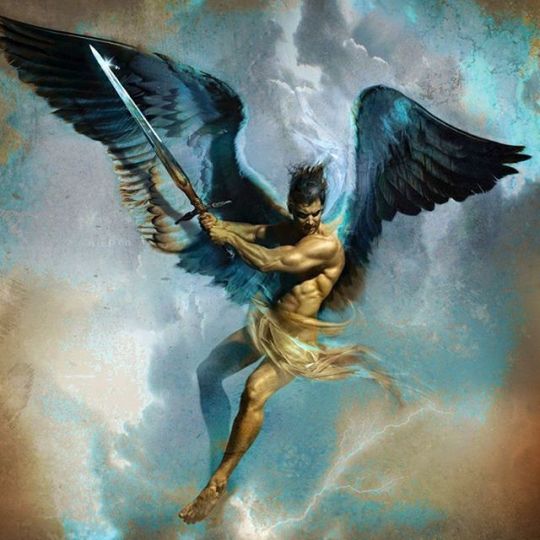
The name Shurdhi appears to be connected with the Albanian term i shurdhët meaning "the deaf one", however, this link seems to be only a coincidence, since the name Shurdh is more likely a compound of *seuro, "water" (cf. Albanian shurrë "urine"), and *dos "giver/donor" (cf. Albanian dhashë/dha, "I gave/he gave"); his name thus means "water donor". A relation between the name Shurdh and the second part of the theonym Zibelsurdus found in ancient Thracian epigraphic monuments has been suggested.
The coincidence of the name of the weather and storm god Shurdh with the term shurdh-i "the deaf one" probably gave rise to the adjectival noun I Verbti "the blind one" or Shën Verbti "the holy blind one", which was used to refer to the weather and storm god in the Albanian Alps along with Rrmoria, and to refer to the fire and wind god in the Zadrima region.
The theonym Shurdh could be related to the name of the island of Shurdhah near Shkodër, and it is found in the oronym Maja Shurdh ("Shurdh Peak") in Kelmendi, and the toponym mi Shurdh, a region in Mirdita.
According to folk beliefs, Shurdhi travels using storm clouds which announce hailstorms when he arrives. He can be greeted and turned away with noise and gunshots. Baron Nopcsa identified Shurdhi with the ancient Thracian thunder deity Zibelsurdus, who was also greeted with weapons. According to Karl Treimer, a presumable basic form perejont-, "the striker", of the Albanian divine name Perëndi may be an epithet of the thunderstorm god Shurdh, who may have been a favorite god since he would have refreshed pastures and fields and was probably also of a warlike nature after this presumable epithet given to him.
8 notes
·
View notes
Photo
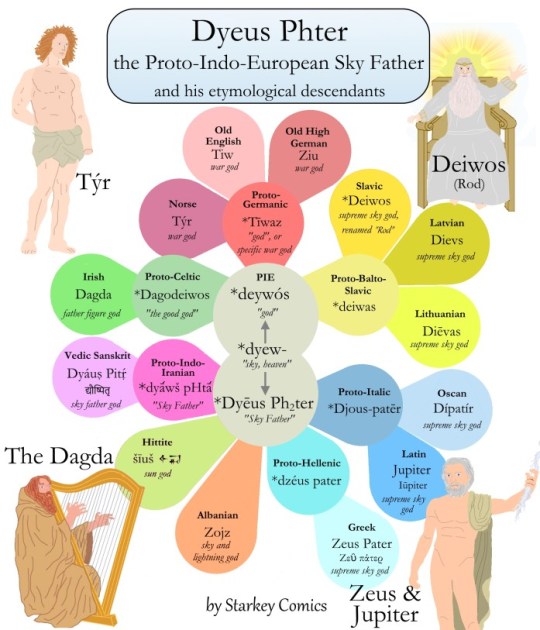
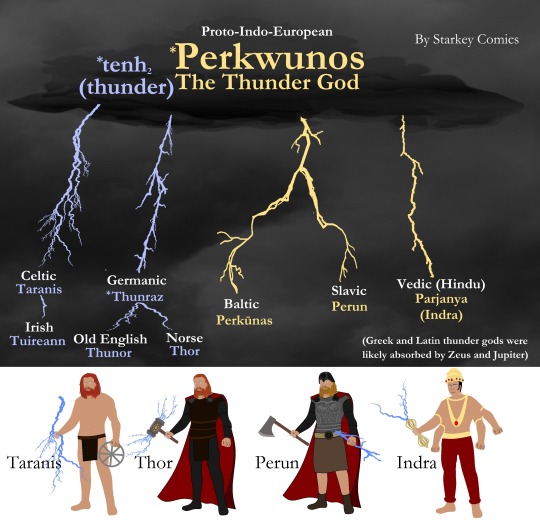
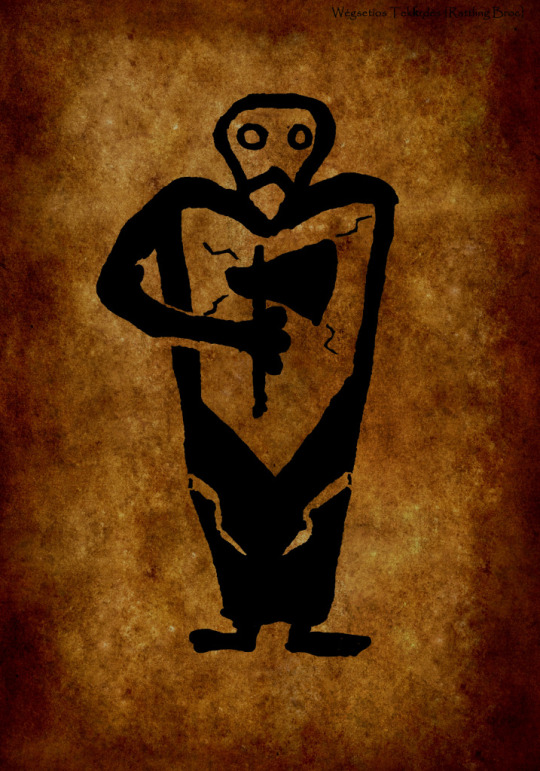
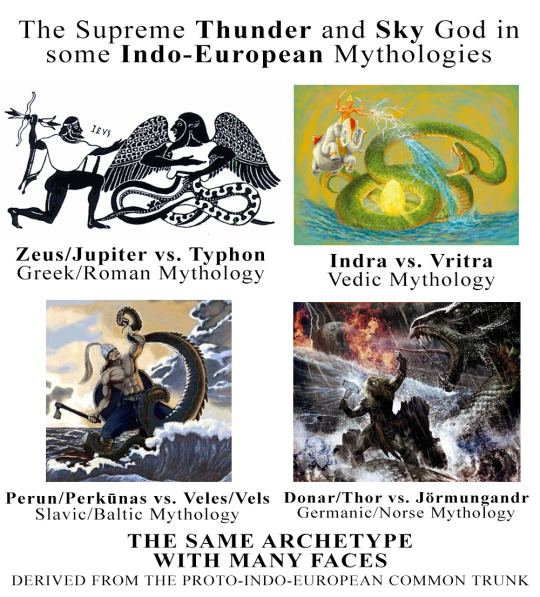
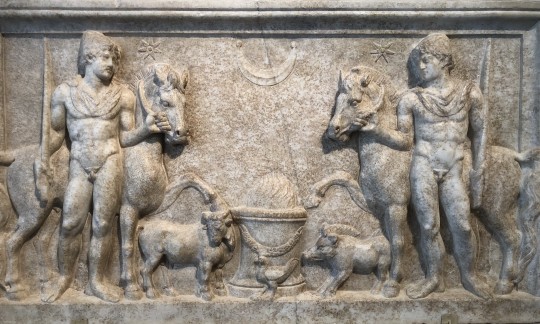
Proto-Indo European Deities
One of the most likely theories, considering the origins of most of the Germanic spiritual practices and Gods, is that they have originated from the bronze age people who came into contact with the Proto-Indo Europeans. These Proto-Indo Europeans spread their language, traditions, way of life and spirituality all across Europe (with a few exceptions). In this post I want to name several reconstructed Proto-Indo European deities and their etymological descendants throughout Europe, and the middle east and India.
Dyeus:
At first I want to begin with Dyeus. This is the reconstructed name of the chief God of the Proto-Indo European pantheon. The name means 'brightness of the day' and is reconstructed with the help of Grimm's law and by carefully researching related languages such as Sanskrit, Ancient Greek, old Armenian and old Anatolian. All of the Indo-European languages, modern and old, seem to have a common root word for God.
The meaning of the name plus the fact that the root is still visible in every Indo-European language, suggests that this deity was incredibly important, most likely the most important of all deities. Dyeus is the sky father, associated with brightness and the skies and perhaps creator of mankind according to the Proto-Indo Europeans. There are however no written sources nor physical evidence describing Dyeus so his exact role will forever be a mystery.
If we look at the Proto-Indo-European root 'Dyeu', we can discover many deities with a very similar name and role. These deities are likely etymological descendants of Dyeus, here is a list:
Proto-Indo European: Dyeus
Hellenic: Zeus
Hittite: Sius
Thracian: Zi or Diu
Vedic: Dyaus Pittr
Indo-Iranian: Dyaus
Anatolian: Diu
Roman: Jupiter
Slavic: Diva
Baltic: Deiwas
Germanic: Tiwaz and Wodanaz
Gaulish: Deuos
Gaelic: Dagda
Perkwunos:
This is the reconstructed name of the thunder/weather god of the Proto-Indo European pantheon. The meaning of the reconstructed name means either: 'the striker' or 'lord of the oaks'. Two roots are possible for this theory, the root 'Per', which means 'to strike' and perkus 'the oak'. It is also possible that both roots are actually united since it is possible that people associated high trees, like oaks, with lightning strikes.
We do not know how Perkwunos looks like but if we compare his etymological descendants with each other, it seems that Perkwunos might be wielding a weapon like a hammer or a club. He's not only the god of thunder but appears to be controlling all of the weather. Perhaps the Proto-Indo Europeans prayed to him when they wanted rain for their crops or when they wanted a natural disaster to stop.
Here is a list of his etymological descendants:
Proto-Indo European: Perkwunos
Slavic: Perun
Baltic: Perkunas
Vedic: Parjanya/Indra
Greek: Heracles and/or Keraunos (the name of Zeus' bolt)
Gaulish: Taranis
Gaelic: Tuireann
Germanic: Donar/Thor
Thracian: Perkos
Scythian: Pirkunas
Nuristani (Afghanistan): Pärun
Illyrian: Perendi
Neptonos:
This is the reconstructed name of the God of the seas/waters. The name literally means 'Grandson of the waters' and it has been reconstructed by observing all of the sea deities of the Indo-European cultures. Since we have no image or written sources about this deity, we do not know how he would have looked like, perhaps he was holding a staff like most other sea deities. We also do not know his exact role in the Proto-Indo European pantheon but he is apparently master of all the waters of the earth. Here is a list of his etymological descendants:
Proto-Indo European: Neptonos
Hellenic: Neptune
Roman: Poseidon
Gaulish: Nodens
Gaelic: Manannán
Germanic: Nehalennia/Njördr/Nerthus
Vedic: Varuna
Illyrian: Bindus
Baltic: Bangputys
Suhul:
This is the reconstructed name of the deity related to the sun. There is less evidence for this deity but it seems that the Proto-Indo European root for sun 'Suhul' is connected to quite some sun deities. Here is a list of etymological descendants of Suhul:
Proto-Indo European: Suhul
Gaulish: Sulis
Hellenic: Helios
Roman: Sol
Germanic: Sól
Slavic: Dazhbog
Baltic: Saule
Vedic: Surya
Mehnot:
This is the reconstructed name for the deity related to the moon. It is a common Indo-European tradition to have two deities related to the sun and to the moon so it is possible that they have a common root with a Proto-Indo European Moon God. Here is a list of etymological descendants of Mehnont:
Proto-Indo European: Mehnot
Gaelic: Elatha
Hellenic: Selene
Roman: Luna
Germanic: Máni
Slavic: Hors
Baltic: Menulis
Vedic: Soma
The divine twins:
Sadly it is impossible to reconstruct the name of these divine twins but it is a well accepted theory that these are either two brothers or brother/sister of the Sky God Dyeus. Almost every Indo-European religion has a divine twin riding either a horse or another animal. The role of this twin is unclear since divine twins from related cultures seem to have seperate roles. Here is a list of etymological descendants of the divine twins:
Proto-indo European: divine twins/name unknown
Vedic: The Asvins
Baltic: the sons of Dievas
Hellenic: Castor and Pollux/Dios-Kouroi
Germanic: Frey and Freya/Hengist and Horsa
Polish: Lel and Polel
Indo-Iranian: Nakula and Sahadeva
Etruscan: Tinas Clenar/sons of Jupiter
Gaulish: Divanno and Dinomogetimarus
Welsh: Bran and Manawydan
Dheghom:
This is the reconstructed name of the earth-Goddess. Mother earth seems to have been known since paleolithic times although we can of course not provice any proof for this theory. She's most likely the wife of the Sky God Dyeus as this is usually the case in Indo European religions. She represents growth, fertility and death. The meaning of her name is still being debated but it might mean 'the broad one'. Here is a list of her etymological descendants:
Proto-Indo European: Dhegom
Gaelic: Danú
Hellenic: Hera or Gaia
Slavic: Maty Syra Zemlya
Baltic: Zemyna
Roman: Juno
Thracian: Zemela
Germanic: Nerthus/Jörd
Vedic: Prithvi
God of the Underworld:
Sadly it is also not possible to reconstruct the name for the God of the underworld but since virtually every Indo European religion has a God/Goddess of the underworld, it is very likely that the Proto-Indo Europeans also had a deity to guard the underworld. Here is a list of etymologically related Gods of the underworld:
Proto-Indo European: unknown
Vedic: Yama
Hellenic: Hades
Roman: Dis Pater
Slavic: Veles
Baltic: Velinas
Germanic: Hel/Holle
Gaelic: Aed
Pehuson:
This is the reconstructed name of a deity representing nature itself. We do not know how he looked like or what his attributes were, we do know that many Indo-European deities have similar Gods representing nature. Here is a list of etymological descendants of Pehuson:
Proto-Indo European: Pehuson
Gaelic: Cernunnos
Gaulish: Cernunnos
Germanic: Ullr/Frey
Hellenic: Pan
Roman: Faun
Vedic: Pushan
Hausos:
This is the reconstructed name for the deity of dawn or spring. She represents the rebirth of nature and warmth thus her attributes are quite similar to the solar deities. Yet again most Indo-European religions appear to have a deity of dawn/spring. Her name means 'to shine'. Here is a list of her etymological descendants:
Proto-Indo European: Hausos
Gaelic: Brighid
Gaulish: Brigantia
Germanic: Eostre
Hellenic: Eos
Roman: Aurora
Slavic: Zorya
Baltic: Ausrine
Vedic: Ushas
Here are other beings that are present in virtually every Indo European religion and thus have likely a common root in the Proto-Indo European religion:
Beings of fate:
There is a very big possibility that the Proto-Indo Europeans believed in three Goddesses or beings who were able to spun or weave the fate of all living beings in the universe. They often appear as either three young maidens or three women representing the three stages of life or the three stages of time (past, present, future). Here is a list of possible etymologically related beings of fate:
Proto-Indo European: name unknown
Hellenic: the Morai
Germanic: the Norns
Hittite: the Gulses
Roman: the Parcae
Baltic: Deives Valdytojos
Slavic: Rozanicy
Albanian: the Fatit
Gaulish: The three Morrigna
The giant serpent:
Almost every Indo-European religion has an epic story of a hero battling a gigantic snake/dragon/serpent. This hero is often the thunder God or another deity related to weather. Because this theme is so incredibly common, it is a very likely theory that the Proto-Indo Europeans also believed in a giant serpent/dragon and a thundergod (Perkwunos) who fought it. Here is a list of etymologically related serpents:
Proto Indo-European: Unknown
Hittite: Illuyanka (slain by Tarhunt)
Vedic: Vritra (slain by Indra)
Hellenic: Typhon (slain by Zeus)/ Hydra (slain by Heracles)
Germanic: Jörmungandr (fought by Donar/Thor)
Persian: Zahhak (slain by Fereydun)
Slavic: Veles (slain by Perun)
The Christian/Jewish story of the Genesis: Tehom
Sumerian: Tiamat
Armenian: Vishap (slain by Vahagn)
Gaelic: Meichi (healed by Dian Cecht)
I am so sorry for this incredibly long post but I hope you have some more insight into the Proto-Indo European pantheon and realise that all European deities (with a few exceptions) all represent the same attributes/roles/beings. The stories of the Germanic Gods are not unique but a shared story with other European and even Indian native religions.
Here are images of:
Dyeus and his etymological descendants by Starkey Comics,
Perkwunos and his etymological descendants by Starkey Comics,
A modern interpretation of Perkwunos by Wegsetios Tekkerdes,
An image depicting several Serpent/hero battles.
An image representing the divine twins (Castor and Pollux),
344 notes
·
View notes